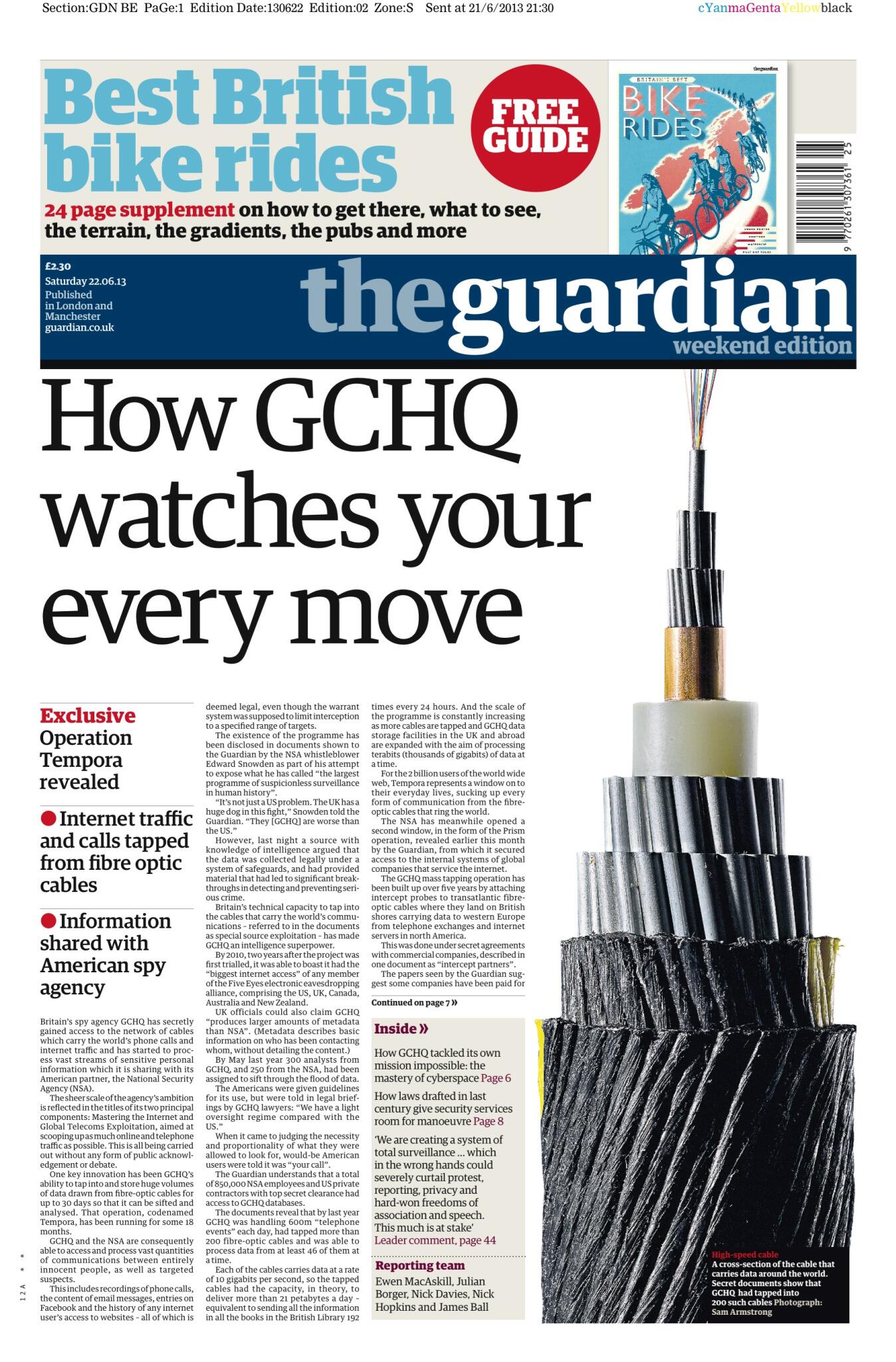
4 Oct, 2013
UK spy agency faces legal action over mass surveillance
London, 03 Oct 2013, (Media release) — Today Big Brother Watch, working with the Open Rights Group, English PEN and German internet activist Constanze Kurz, has announced legal papers have been filed alleging that GCHQ has illegally intruded on the privacy of millions of British and European citizens. We allege that by collecting vast amounts of data leaving or entering the UK, including the content of emails and social media messages, the UK’s spy agency has acted illegally.
 A dedicated website – Privacy not Prism – has been set up to fund the legal action.
A dedicated website – Privacy not Prism – has been set up to fund the legal action.
The laws governing how internet data is accessed were written when barely anyone had broadband access and were intended to cover old fashioned copper telephone lines. Parliament did not envisage or intend those laws to permit scooping up details of every communication we send, including content, so it’s absolutely right that GCHQ is held accountable in the courts for its actions.
These concerns have also been raised by Parliament’s Intelligence and Security Committee, who questioned if the legal framework is adequate.

When details recently emerged in the media about the Prism and Tempora programmes, codenames for previously secret online surveillance operations, it was revealed that GCHQ has the capacity to collect more than 21 petabytes of data a day – equivalent to sending all the information in all the books in the British Library 192 times every 24 hours. The disclosures have raised serious parliamentary concerns both in Britain and at the EU level.
Deighton Pierce Glynn solicitors represent the applicants, instructing Helen Mountfield QC of Matrix Chambers and Tom Hickman and Ravi Mehta of Blackstone Chambers.
Quote from the deposition:
6.2 In relation to GCHQ’s own generic interception capability, the provisions contained in RIPA relating to external communications warrants allow UKIS to obtain general warrants permitting indiscriminate capturing of vast amounts of communication effectively on an indefinite basis. The legal provisions which permit generic warrants in relation to such external communications are insufficiently protective to provide an ascertainable check against arbitrary use of secret and intrusive state power.
6.3. Such legal provisions do not enable persons to foresee the general circumstances in which external communications may be the subject of surveillance (other than that any use may be made of communications if considered in the interests of national security—a concept of very broad scope in UK law); they do not require authorisations to be granted in relation to specific categories of persons or premises; they permit indiscriminate capture of communications data by reference only to its means of transmission; and they impose no significant restrictions on the access that foreign intelligence partners may have to such intercepted material. In short, there are no defined limits on the scope of discretion conferred on the competent authorities or the manner of its exercise. Moreover, there is no adequate degree of independent or democratic oversight. Indiscriminate and generic interception and the legal provisions under which it is carried out thereby breach the requirements that interferences with Article 8 must be “in accordance with the law” and must be proportionate.



Liked this article? Share it!